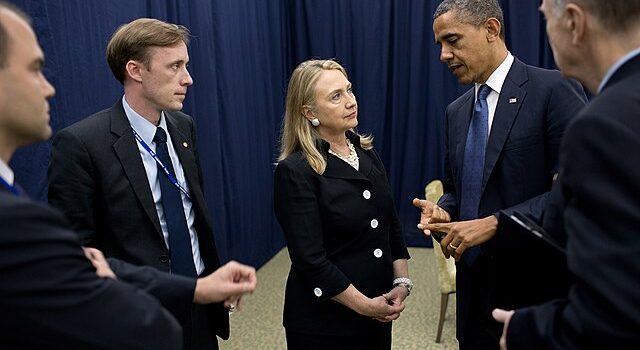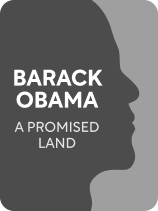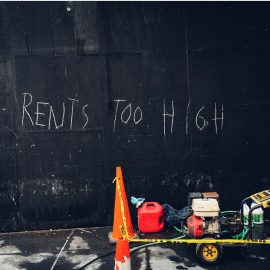

This article is an excerpt from the Shortform book guide to "A Promised Land" by Barack Obama. Shortform has the world's best summaries and analyses of books you should be reading.
Like this article? Sign up for a free trial here .
What was Obama’s foreign policy? How did Obama’s ideals shape his foreign policy?
Obama’s approach to foreign policy was based strongly on his beliefs in America’s potential. He also rejected the foreign policy establishment, and believed there was need for change.
Read more about Obama, foreign policy, and how Obama approached different international issues.
Obama and a New Foreign Policy Approach
So far, we’ve explored the early Obama administration’s domestic policies. But there were also pressing foreign policy needs. Obama inherited a muddled and chaotic national security situation. There was the ongoing threat of international terrorism, two overseas wars, and the urgent moral necessity of winding down America’s torture program being conducted at CIA-run sites around the world. The War on Terror, meanwhile, had already imposed enormous costs: nearly 3,000 U.S. troops killed and $1 trillion expended.
Fulfilling America’s Highest Ideals
Obama’s overarching foreign policy goal would be to make the nation truly fulfill its highest ideals.
As we saw, ever since he was a young man at Columbia in New York City, Obama had rejected the cynical worldview of many of his contemporaries on the left. While the United States had certainly perpetrated misdeeds and human rights abuses internationally—misdeeds that ultimately undermined America’s global credibility and its own national security—Obama did not believe that the U.S. was responsible for all the evil and suffering in the world.
In fact, he saw that America’s ideals of democracy, the rule of law, and free enterprise represented a beacon of hope for people around the world living in oppression and poverty. If America was guilty of anything, it was failing to live up to those standards.
Against the Foreign Policy Establishment
His nuanced and balanced perspective, however, made Obama a figure of suspicion among the Washington, D.C. foreign policy and national security establishment. This establishment was an informal, but tightly knit network of military officials, State Department officials, congressional staffers, intelligence agents, journalists, and think tank analysts who had been guiding American foreign policy for both major political parties since the end of World War II.
Members of this clique defended their record by saying that they provided U.S. foreign policy with a consistency and stability that had enabled the nation to successfully navigate and win the Cold War and emerge as the world’s preeminent superpower in the 21st century.
Critics—like Obama—believed on the other hand that the foreign policy community had devolved into a consensus-driven, conformist, and groupthink mentality, while exercising a complete lack of moral judgment. Its failures could be seen in the ill-fated rush to war in Iraq, the establishment of extrajudicial detention centers at Guantanamo Bay and Abu Ghraib, and the documented use of torture by U.S. interrogators. All of this undermined America’s moral standing in the world and hindered the achievement of Obama’s long-term strategic foreign policy goals.
Throughout Obama’s term in office, these tensions would play out between the foreign policy establishment and its critics, with the conflict even taking place within the administration itself. More seasoned figures like Robert Gates and Hillary Clinton would clash with younger, more iconoclastic administration officials like Ben Rhodes and Jake Sullivan, the latter of whom questioned many of the guiding assumptions of U.S. foreign policy and sought to move away from the consensus. Obama’s foreign policy goals were ambitious, and he frequently was at odds with the establishment during his term.

———End of Preview———
Like what you just read? Read the rest of the world's best book summary and analysis of Barack Obama's "A Promised Land" at Shortform .
Here's what you'll find in our full A Promised Land summary :
- How Barack Obama went from relative obscurity to the first Black president
- What principles guided his political leadership style
- Why Obama retained an unshakable faith in the potential and promise of America






